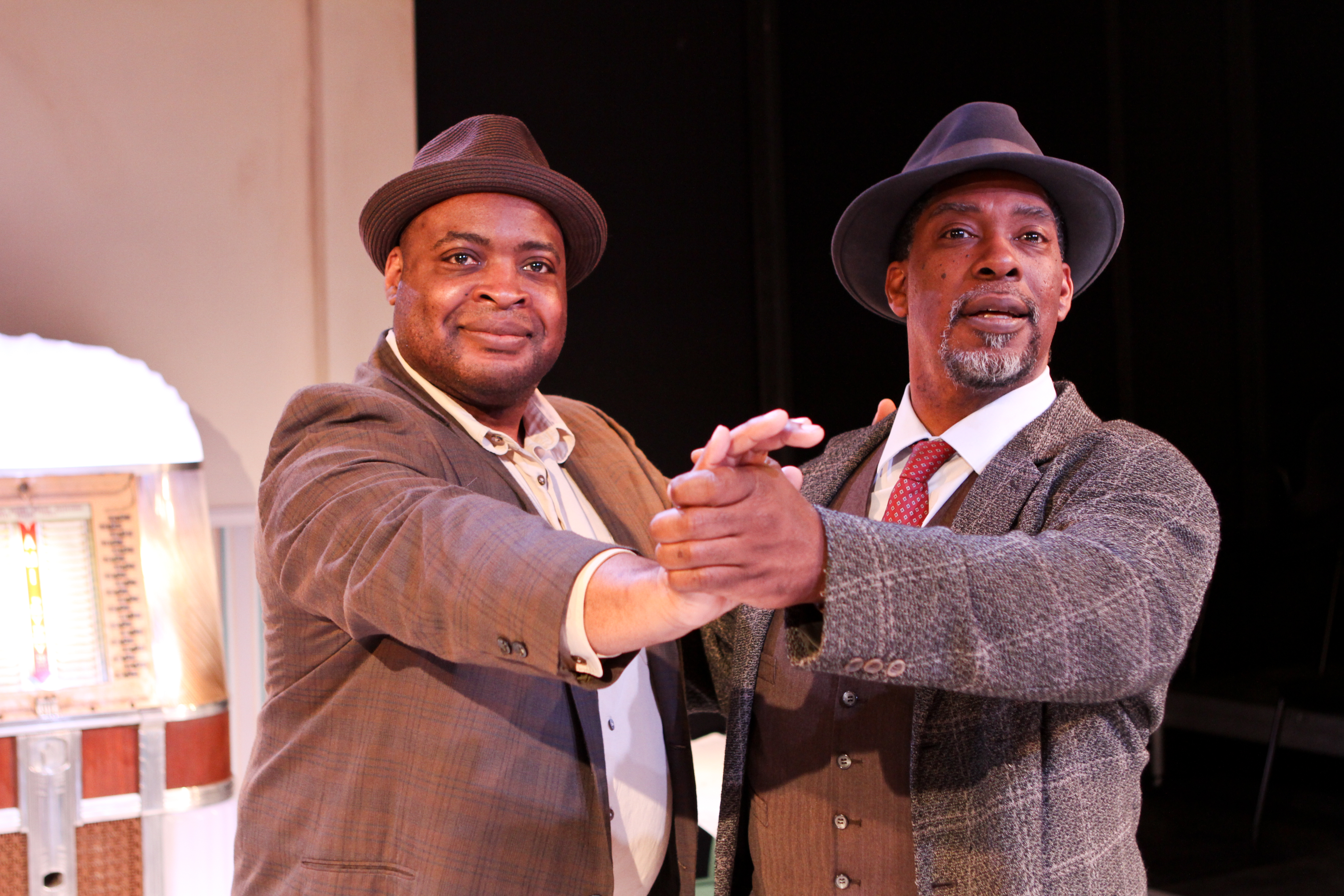P“Master Harold” . . . and the Boys
West of Lenin, 203 N. 36th St., 352-1777, westoflenin.com. $12–$20. 8 p.m. Thurs.–Sat., 2 p.m. Sun. Ends April 21.
Athol Fugard’s autobiographical drama about two middle-aged black men in 1950 South Africa and their relationship with the white child of their employer is a delicate powder keg that needs to go off. In its best airings, including this excellent revival, it does just that. Three decades after its 1982 premiere (which I happened to see and be seared by), it is capable of just as much impact, as though apartheid were still with us. AJ Epstein’s West of Lenin production, directed by M. Burke Walker (a founder of Empty Space Theater), detonates even more shatteringly than I recall the original doing, laying waste to the hopes of the audience.
Sam (G. Valmont Thomas) and Willie (Kevin Warren) have worked for Harold’s mother in Port Elizabeth since Harold (or “Hally”) was a tot—lately in the family’s tea room. As graceful Sam and clumsy Willie prepare to compete in a ballroom-dance competition, late-adolescent Hally (James Lindsay) badgers them with pretentious banter between bouts of family crisis about his father coming home from the hospital. Clearly the two “boys” have been his real father figures, particularly Sam. But now that Hally’s on the verge of adulthood himself, his own repressed shame, anger, and self-loathing transform into vicious racism before our eyes on Catherine Cornell’s period diner set, sandwiched between two stands of audience seating. (Sit on the near side if you can; at key junctures, only half the audience can see the cast, creating a visceral sense of separate-but-not-equal.)
Lindsay is perfect as baby-like Hally; his small eyes seem needy and peevish even as his lanky body affects the languor of privilege. As Thomas’ Sam subtly wrests control of the story, his earlier jovial subjugation hardens into a weapon; his resonant moral authority assumes a dangerous edge. Meanwhile, Warren’s simpler Willie looks on in terror. By this point, several audience members were sobbing. The final recovery of equilibrium comes at a high cost to everybody, like the necessary cleanup after a bombing, and it feels more emotionally informative than a hundred books on apartheid. Off goes Epstein’s galaxy of globe lights, on comes the jukebox’s pink glow—as dreamy as a future that can’t come soon enough. Margaret Friedman
Smudge
Washington Ensemble Theatre, 608 19th Ave. E., 325-5105, washingtonensemble.org. $15–$25. 7:30 p.m. Thurs.–Mon. Ends April 22.
Remember the shock waves when Oprah blew the lid off the parenting myth, exposing the untold story of filth, tedium, pain, and misery associated with childbirth? To hear it from that angle, you had to wonder whether any woman in her right mind would ever have a child again—and those were ordinary births she was talking about! TV writer Rachel Axler (The Daily Show, Parks and Recreation) skips to an outlier case, attempting to put a darkly seriocomic spin on an abnormal birth—a couple delivered of a baby with one eye, no limbs, and questionable genitalia—to strangely little effect. The story unfolds (to the degree that there’s a semblance of progression) around the parents’ and relatives’ reactions to the child. Director Erin Kraft and cast make a sportsmanly effort on behalf of the flimsy, understructured 2010 text, but the tonally erratic parade of one- or two-beat scenes seldom elicits more feeling than a random episode of The Office.
We first meet Smudge, aka “Cassandra,” “Cassie,” or “the Greek,” in an in-utero photo, her parents squinting at it, perplexed by their kid’s amorphousness. This is one of the better moments—relatable by any parent-to-be overwhelmed by the unknowns to come. When the baby arrives, Colby (Carol Thompson) rejects it emotionally, while Nick (Ash Hyman) tries to connect with it, a plausible dynamic. But as he returns to work (at the U.S. Census bureau, cleverly nested into the picture window of Devin Petersen’s living-room set), leaving Colby alone with the baby, weird poltergeist-like lights and sounds begin to suggest that the child (never seen outside its I.V.-bag-decorated bassinet) is demonic or the mom is crazy. As Colby, the likable Thompson binges, mocks the child, and makes flailing attempts to regain a sex life in her shapeless role.
Meanwhile, Census colleague Pete (Noah Benezra) doubles as the standard cliche of obnoxious brother (to Nick), though he delivers his tyrannical, sitcommy rants so quickly and monotonously that it’s hard to follow them. Most irritatingly, every time one of Axler’s scenes stumbles upon a moment that could become interesting or consequential, it cuts to black, as though going to a commercial. She won’t deal with the real work of storytelling beyond snappy setups. The edgy subject matter is not what’s offensive about Smudge, but rather its refusal to let anything authentically human take root in it. Margaret Friedman
E
stage@seattleweekly.com




